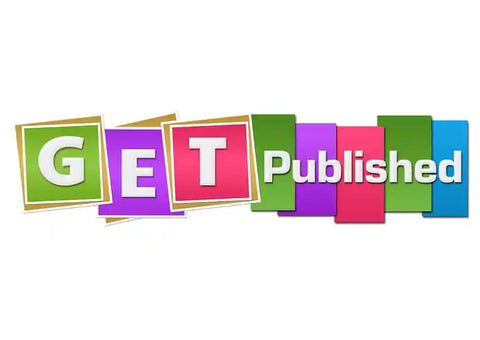A Curva de Aprendizado Íngreme da Autoedição | Dicas sobre Como Publicar Sua Pesquisa
A ideia da autopublicação gerou uma enxurrada de opiniões apaixonadas e argumentos válidos tanto a favor quanto contra. A realidade, no entanto, está além de qualquer debate. A autopublicação está em alta, e autores de todos os tipos estão aproveitando esse fato. Isso significa, claro, que há uma grande quantidade de material questionável inundando o mercado, tanto em mídia impressa quanto eletrônica, mas também significa que agora existem muitos livros autopublicados que são tão bem escritos e belamente apresentados quanto os livros produzidos por editoras tradicionais.
Entre os milhões de livros autopublicados disponíveis para os leitores, até mesmo trabalhos acadêmicos sérios baseados em pesquisas avançadas encontraram seu lugar, mas acadêmicos e cientistas que decidem seguir o caminho da autopublicação devem estar cientes exatamente do que isso envolve. Editoras acadêmicas tradicionais fazem muito para produzir e promover os livros que publicam, e grande parte disso pode não ser imediatamente aparente para os autores que têm a sorte de receber tal atenção dedicada à sua escrita. Quando um autor decide autopublicar, tudo isso deve ser feito pelo próprio autor ou por aqueles a quem ele ou ela paga para realizar as tarefas essenciais à publicação de um livro de alta qualidade.
• Editoras acadêmicas tradicionais organizam para que revisores pares avaliem os manuscritos que planejam publicar e enviam cópias antecipadas de novos livros para especialistas para avaliações a serem incluídas nas capas e em outras informações promocionais. Se você estiver publicando sua própria pesquisa, precisará solicitar ajuda de colegas e mentores para fornecer feedback crítico ao concluir seu manuscrito e comentários positivos para promover seu novo livro. Nenhum dos dois é estritamente necessário, é claro, mas o primeiro tornará o livro melhor e o segundo ajudará você a vender mais cópias.
• Editoras tradicionais fornecem os revisores que corrigem e aprimoram a linguagem de um manuscrito. Isso é feito por duas razões principais: garantir que a escrita esteja livre de erros e comunique de forma clara e precisa com o público esperado, e para conformar-se aos estilos editoriais usados pela editora. Quando você publica por conta própria, precisará verificar e corrigir sua própria gramática, ortografia e pontuação para garantir uma comunicação eficaz. Consultar as diretrizes da editora e manuais de estilo fornecerá exemplos a serem seguidos enquanto você estabelece os estilos para seu livro.
• Editoras tradicionais também formatam os manuscritos que aceitam, organizando texto, tabelas, imagens e outros elementos para uma apresentação atraente e acessível. Se for bem-sucedida, toda essa formatação é praticamente invisível – ela simplesmente funciona para os leitores de uma maneira que não chama atenção para si mesma. Ao autopublicar, o autor deve cuidar de cada detalhe em cada página, garantindo precisão e consistência para um layout que melhora a acessibilidade e aprimora a compreensão da pesquisa relatada.
Esses três aspectos essenciais da publicação de um livro tendem a exigir mais tempo e esforço para aprender e executar do que muitos autores que não se autopublicaram podem imaginar. Acadêmicos raramente têm problemas com curvas de aprendizado íngremes, é claro, mas o tempo é uma mercadoria que muitos acadêmicos e cientistas não possuem, então pode ser útil contratar os serviços de um revisor ou editor profissional, idealmente alguém que se especialize em sua disciplina e área de estudo. De fato, muitos livros autopublicados poderiam se beneficiar da atenção de um especialista em linguagem e formatação, e como você poderá aprender técnicas valiosas com esse especialista, seu investimento trará retornos abundantes.
Por que nossos serviços de edição e revisão?
No Proof-Reading-Service.com oferecemos serviços da mais alta qualidade de edição de artigos para periódicos, revisão de dissertações e serviços de revisão online por meio de nossa grande e extremamente dedicada equipe de profissionais acadêmicos e científicos. Todos os nossos revisores são falantes nativos de inglês que possuem seus próprios títulos de pós-graduação, e suas áreas de especialização abrangem uma ampla variedade de disciplinas, o que nos permite ajudar nossa clientela internacional com a edição de pesquisas para melhorar e aperfeiçoar todos os tipos de manuscritos acadêmicos para publicação bem-sucedida. Muitos dos membros cuidadosamente treinados de nossa equipe de edição de manuscritos e revisão trabalham predominantemente em artigos destinados à publicação em periódicos acadêmicos, aplicando rigorosos padrões de edição de periódicos para garantir que as referências e a formatação usadas em cada artigo estejam em conformidade com as instruções para autores do periódico e para corrigir quaisquer erros de gramática, ortografia, pontuação ou simples digitação. Dessa forma, permitimos que nossos clientes apresentem suas pesquisas de maneira clara e precisa, conforme exigido para impressionar os revisores de aquisição e alcançar a publicação.
Nossos serviços de revisão científica para autores de uma ampla variedade de artigos científicos são especialmente populares, mas também oferecemos serviços de revisão de manuscritos e temos a experiência e a expertise para revisar e editar manuscritos em todas as disciplinas acadêmicas, bem como além delas. Temos membros da equipe que se especializam em serviços de revisão médica, e alguns de nossos especialistas dedicam seu tempo exclusivamente à revisão de dissertações e revisão de manuscritos, oferecendo aos acadêmicos a oportunidade de aprimorar o uso de formatação e linguagem por meio das mais rigorosas práticas de edição de tese de doutorado e revisão de artigos para periódicos. Seja você preparando um artigo para conferência para apresentação, aprimorando um relatório de progresso para compartilhar com colegas, ou enfrentando a tarefa assustadora de editar e aperfeiçoar qualquer tipo de documento acadêmico para publicação, um membro qualificado de nossa equipe profissional pode fornecer assistência inestimável e lhe dar maior confiança em seu trabalho escrito.
Se você está no processo de preparar um artigo para um periódico acadêmico ou científico, ou planejando um para o futuro próximo, pode se interessar por um novo livro, Guide to Journal Publication, que está disponível em nosso site Dicas e Conselhos sobre Publicação de Pesquisa em Periódicos.








